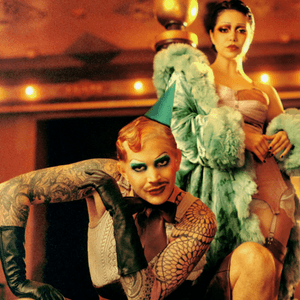CONTACTStaffCAREER OPPORTUNITIESADVERTISE WITH USPRIVACY POLICYPRIVACY PREFERENCESTERMS OF USELEGAL NOTICE
© 2024 Pride Publishing Inc.
All Rights reserved
All Rights reserved
By continuing to use our site, you agree to our Private Policy and Terms of Use.
Samuel Alito, the conservative federal appeals judge nominated to the Supreme Court, could make an immediate difference on abortion, death penalty, and gay rights cases once on the court. If confirmed, he would replace Justice Sandra Day O'Connor, often a swing vote on these issues. Alito's track record on abortion, developed during a 15-year career on the Philadelphia-based U.S. court of appeals for the third circuit, suggests a shift toward more restrictions on the procedure. But his record on abortion is mixed, and there is no guarantee he would vote to overturn Roe v. Wade, the court's landmark 1973 decision establishing a woman's constitutional right to an abortion. In 1991 Alito voted to uphold a Pennsylvania law requiring women seeking abortions to notify their husbands. When the case reached the Supreme Court, the justices used it to reaffirm Roe. O'Connor was an architect of that 5-4 decision, which struck down the spousal notification requirement. A Catholic, Alito opposes abortion, his 90-year-old mother told reporters Monday. But as an appeals court judge, Alito was required to abide by previous Supreme Court rulings, and he did. Carl Tobias, a University of Richmond law professor, said that although Alito's opinions suggest he is more conservative than O'Connor, it is difficult to predict how he might rule once on the court. "It's always unpredictable saying what the docket will look like in 10 years," Tobias said. "It could be high-tech, biotech.... If it were present-day issues, you'd have to take it case by case." Although Alito's judicial career--hundreds of written opinions and participation in thousands of cases--shows him to be a conservative, his decisions have not always been predictably to the right. For example, he held that an Iranian woman could establish eligibility for asylum by showing she would be persecuted back home because of her sex, her belief in feminism, or membership in a feminist group. And he supported a high school boy who had been bullied by students who saw him as gay and nonathletic, ruling in the majority that the school had not sufficiently protected him from the taunting. Alito has argued a dozen times before the Supreme Court, winning eight cases, losing two, and splitting on two. He is a stout defender of religious freedoms, but he appears less accommodating of discrimination and harassment claims. Alito wrote the majority opinion in a 1999 decision overturning a wide-ranging antiharassment policy at Pennsylvania's State College Area School District. The court ruled that the district went too far with a policy that prohibited harassment based on everything from race and sexual orientation to "other personal characteristics," including clothing, appearance, and social skills. The suit had been brought by two Christian students who wanted to preach against homosexuality. In one snapshot of a varied career, a Duke University Law School study found that Alito was the most frequent dissenter on the court in the mid 1990s, taking the minority view 17 times in 44 cases heard by the moderate to liberal court. (AP)
Want more breaking equality news & trending entertainment stories?
Check out our NEW 24/7 streaming service: the Advocate Channel!
Download the Advocate Channel App for your mobile phone and your favorite streaming device!
From our Sponsors
Most Popular
Meet all 37 of the queer women in this season's WNBA
April 17 2024 11:24 AM
Here are the 15 gayest travel destinations in the world: report
March 26 2024 9:23 AM
21+ steamy photos of Scotland’s finest gay men in Elska Glasgow
February 01 2024 10:07 PM
More Than 50 of Our Favorite LGBTQ+ Moms
May 12 2024 11:44 AM
Conjoined twins Lori Schappell and trans man George Schappell dead at 62
April 27 2024 6:13 PM
Latest Stories
Kamala Harris rides wave of Democratic energy at kickoff event in Wisconsin
July 23 2024 3:36 PM
'Devastated:' A six-week abortion ban will go into effect in Iowa next week
July 23 2024 2:28 PM
Four hours, 44,000 Black women, and one Zoom call
July 23 2024 2:17 PM
Record 1.2 million people show out for Cologne’s Pride parade
July 23 2024 10:51 AM
Here's how far-right activist Leonard Leo helped fund Bud Light boycott
July 23 2024 10:27 AM
Elon Musk’s comments about his trans daughter prove why she doesn’t speak to him
July 23 2024 9:16 AM
Nancy Pelosi endorses Kamala Harris for president
July 22 2024 4:07 PM
Trending stories
Most Recent
Recommended Stories for You


















































































